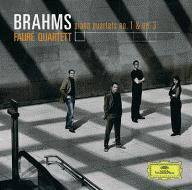Iván Fischer and Budapest Festival Orchestra Release New Recording
Gustav Mahler’s Sublime Fourth Symphony
 Critically Acclaimed (including Gramophone “Editor’s Choice”),
Available in U.S. from Channel Classics on Tuesday, April 14
Critically Acclaimed (including Gramophone “Editor’s Choice”),
Available in U.S. from Channel Classics on Tuesday, April 14
“Another spectacular release in a Mahler discography that is shaping up to be as exciting as any since Bernstein’s.” – Gramophone
Conductor Iván Fischer and the Budapest Festival Orchestra – who are currently celebrating their 25th-anniversary season – add another jewel to their glittering discography for Channel Classics with the U.S. release of a new recording of Gustav Mahler’s sublime, transcendent Symphony No. 4, on April 14. The album, featuring Swedish soprano Miah Persson singing the finale’s dream poem on the joys of heavenly life, has already been greeted with a chorus of critical acclaim. Gramophone named the album an “Editor’s Choice” selection in its April 2009 issue, which also features a major feature story about “the remarkable alchemy of a conductor and the orchestra everyone is talking about.”
The reviews website ClassicsToday.com gives the release its highest rating, 10/10 for “Artistic/Sound” quality, noting, “There is no better-conducted recording of Mahler’s Fourth Symphony available than this one.” The review provides much detail about the many felicities of the performance, including these concluding observations:
“Fischer and Persson capture the music’s innocence with unforgettable sweetness and joy. And they understand that the little joke that Mahler plays at the symphony’s very end works best when still presented in lively fashion: ‘everything awakes to joy,’ the solo sings, just as the music does the opposite: it goes to sleep in dreamy contentment.
“You certainly won’t go to sleep listening to this extraordinary, warmly engineered performance, but the contentment you will feel at its end is surely the stuff of dreams.”
Britain’s Guardian calls it a “provocative, iconoclastic performance, and highly recommended.”
Iván Fischer describes the work briefly in the album’s liner notes:
“There is a unique purity and transparency in Mahler’s Fourth Symphony. The enchanting sleigh bells take us to his inner child, to his dreams of angels, fairy tales, angst, and pure, divine love.. This child-like symphony needed a different orchestra: no dark tuba, no heavy trombones, no large arsenal of massive brass. A chamber orchestra in fact, where the clarinets act as mock trumpets, the solo violin tunes his strings sharper in order to scare us, and the lightness of the whole orchestra lifts up to his lovely, childish vision of paradise.”
Though no doubt critics and fans will wish it were otherwise, Fischer has said publicly that he does not intend to record a complete Mahler cycle. Rather, he will continue to record works by various composers for which he and the orchestra feel a special affinity. Fischer and the BFO have, however, previously recorded two other Mahler symphonies. The first, Mahler’s tragic Symphony No. 6, released in December 2005, was nominated for a Grammy Award and named one of the best CDs of the year by The New Yorker. The second, Mahler’s Symphony No. 2, was released in October 2006 and won the prestigious “Editor’s Choice” Gramophone Award. The Washington Post called the disc “one of the best recordings of the ‘Resurrection’ Symphony ever made.”
The Budapest Festival Orchestra’s 25th-anniversary season has already been a spectacular success. Earlier in the season, a poll of international critics chosen by Gramophone selected the Budapest Festival Orchestra as one of the world’s top ten orchestras. Fischer led the BFO on a triumphant tour of the U.S. in January 2009 that included a return to New York ’s Carnegie Hall to open a major festival dedicated to Hungarian culture. Writing for The New York Times, James Oestreich called the Fischer/BFO performance of Brahms’s First Symphony “stirring”; in the Wall Street Journal, Barrymore Scherer found it “a luminous, deeply eloquent performance that [he would] long remember.”
Fischer and the BFO return to New York in March 2010 for a remarkable project that will also feature the Orchestra of the Age of Enlightenment: a complete cycle of Beethoven’s nine symphonies. Over a four-day span (March 25–28), Fischer will lead the BFO and the celebrated period-instrument ensemble in four concerts that will give listeners the unique chance to make a side-by-side comparison of how Beethoven sounds on the instruments of his time versus those of our own. “Beethoven Then and Now: The Complete Symphonies” will take place at New York’s Lincoln Center, with performances in both Avery Fisher Hall and Alice Tully Hall (complete details to follow in future news releases).

Comments